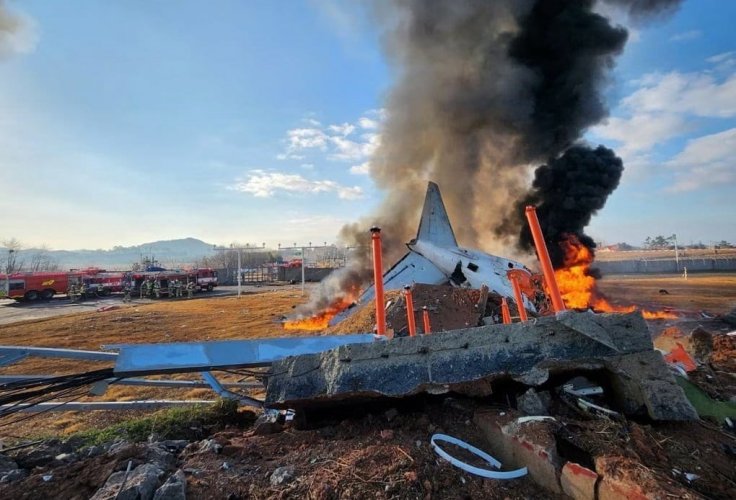A wave of travel cancellations has swept South Korea following a tragic airline crash that killed 179 people. Airline and travel industry sources reported a sharp rise in cancelled flights and tours as public fears over aviation safety grow.

Jeju Air, one of South Korea's largest airlines, announced that 68,000 flight reservations had been cancelled by 1 p.m. Monday (local time). The cancellations included over 33,000 domestic flights and 34,000 international routes, according to Yonhap News Agency.
The surge began on Sunday after Jeju Air flight 7C2216 crashed at Muan International Airport. The flight, carrying 181 passengers and crew, met with disaster in the southwestern county of Muan. The crash triggered widespread alarm, leading to mass cancellations and disrupted travel plans.
Local travel agencies also felt the impact. Many reported a significant uptick in tour cancellations and inquiries about refund policies. Several agencies suspended advertising and promotional activities in response to the crisis.
"We received 40 inquiries about cancellations just on Sunday," said a travel agent who wished to remain anonymous. "Cancellations doubled compared to usual, and bookings have dropped by 50 percent."
Industry insiders say the travel sector is bracing for further fallout as public anxiety over flying continues to rise.
Adding to the tension, another Jeju Air flight encountered a similar mechanical issue on Monday. Flight 7C101, departing Gimpo International Airport for Jeju, reported a landing gear problem shortly after takeoff at 6:37 a.m. The flight returned to Gimpo safely at 7:25 a.m., with all 161 passengers unharmed.
Jeju Air confirmed the defect was related to the same type of landing gear issue found in the aircraft involved in Sunday's crash. The airline has since grounded similar models for inspection.
The airline industry is under scrutiny as investigators probe the causes of the deadly crash. Initial findings suggest maintenance lapses may have played a role. Jeju Air's CEO has publicly apologized, vowing to cooperate fully with authorities.
Travel agencies and airlines are now focused on rebuilding public trust. However, experts say restoring confidence may take months.
The tragedy highlights the need for stricter safety protocols and comprehensive maintenance checks in the aviation sector. As the investigation continues, South Korea's aviation authority has pledged to tighten oversight and improve safety standards to prevent further incidents.
This disaster serves as a grim reminder of the importance of robust aviation safety measures, leaving many to question how such a tragedy could occur.
4o
O









